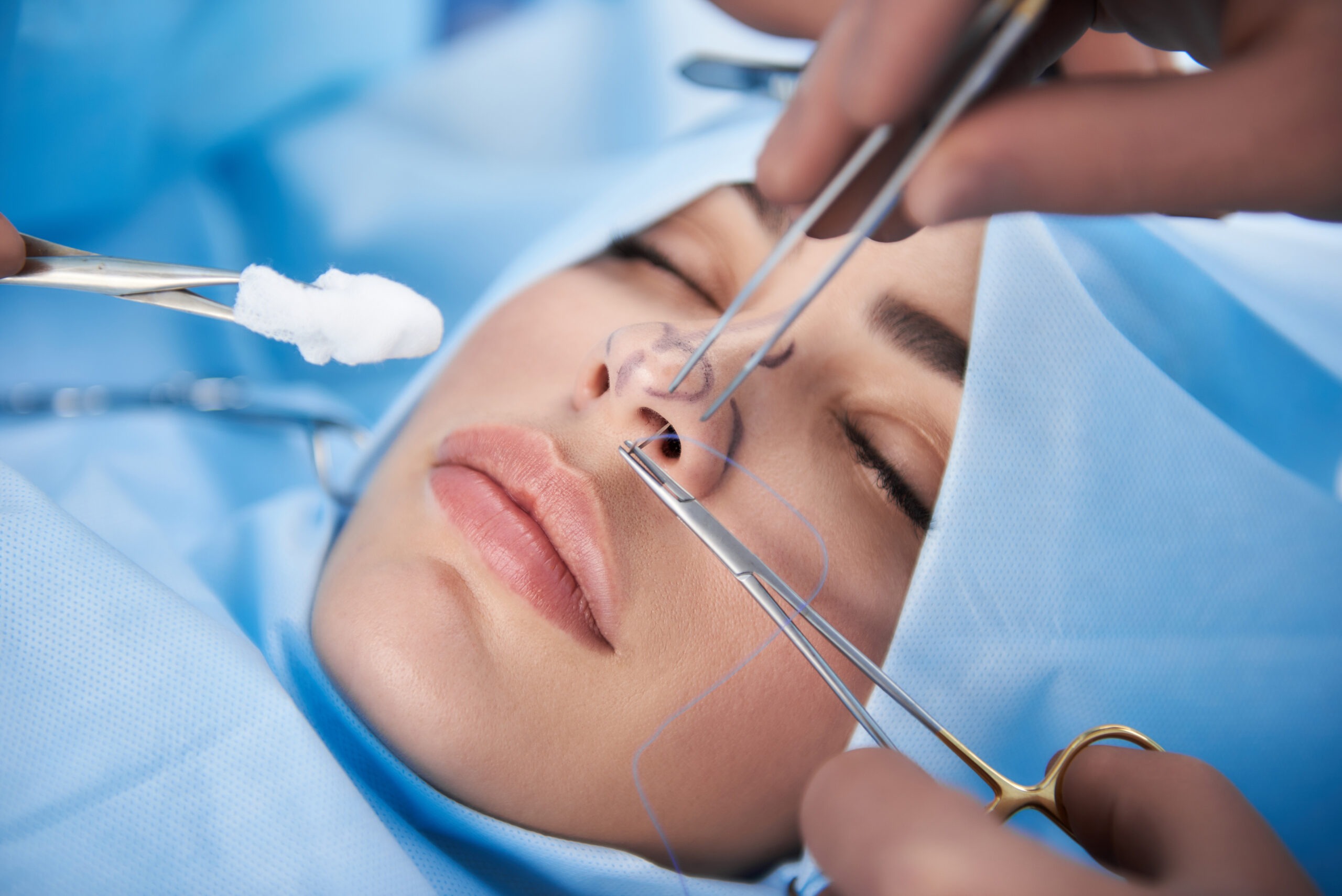Managing Pain and Discomfort After Rhinoplasty
Published on February 4, 2024 by Michael Rodriguez
Rhinoplasty, commonly known as a nose job, is a surgical procedure designed to enhance the appearance and function of the nose. While this procedure can bring about life-changing results, the recovery process requires careful attention to managing pain and discomfort effectively. To help you out, we compiled the best tips and tricks to manage rhinoplasty recovery like a pro from weeks 1-12.
Quick Facts About Rhinoplasty
What Is Rhinoplasty
Rhinoplasty is a cosmetic surgery that involves reshaping the nose to improve its appearance or functionality. Surgeons may address issues such as a crooked nose, a prominent hump, or breathing difficulties. The procedure can be both cosmetic and reconstructive, depending on the goals of the patient. Overall, rhinoplasty aims to achieve a harmonious balance between the nose and other facial features.
Why Is Rhinoplasty Performed
People choose rhinoplasty for a variety of reasons. Cosmetic concerns, such as dissatisfaction with the size or shape of the nose, often prompt individuals to seek this procedure. Rhinoplasty can also address functional issues, including breathing difficulties caused by structural abnormalities in the nose.
Benefits of Rhinoplasty
The benefits of rhinoplasty extend beyond aesthetic improvements. Patients often experience enhanced self-confidence and satisfaction with their appearance. Moreover, correcting structural issues can lead to improved breathing and nasal function. The decision to undergo rhinoplasty is a personal one, and understanding both the cosmetic and functional benefits is important before considering the procedure.
Rhinoplasty Recovery Timeline
The recovery process after rhinoplasty is a journey that spans several weeks. Understanding the recovery timeline and knowing what to expect at each stage is essential for successful results. Here are some pain management tips to help you experience a quick and smooth recovery.
Week 1
What to Do:
- Follow your surgeon’s post-operative care instructions diligently.
- Keep your head elevated to minimize swelling.
- Take prescribed pain medications as directed.
- Use a saline rinse to clean the nose.
- Use a straw when drinking water or any other beverage.
- Apply a cold compress to reduce swelling.
What to Avoid:
- Avoid strenuous activities and exercise.
- Refrain from blowing your nose.
- Do not wear glasses that rest on the nose bridge.
When to Call Your Surgeon:
- If you experience severe pain or unusual swelling.
- In case of persistent bleeding.
- If you develop signs of infection, such as fever.
Week 2
What to Do:
- Attend a follow-up appointment with your surgeon.
- Tape your nose as instructed.
- Gently clean the incision sites as instructed.
- Gradually reintroduce light activities.
What to Avoid:
- Avoid excessive sun exposure.
- Refrain from participating in contact sports.
- Do not engage in activities that could impact the nose.
When to Call Your Surgeon:
- If you notice any signs of infection.
- In case of sudden changes in swelling or bruising.
- If you experience persistent pain.
Week 3
What to Do:
- Continue attending follow-up appointments.
- Begin incorporating light exercises.
- Follow your surgeon’s guidance on skincare around the incision sites.
What to Avoid:
- Avoid alcohol and tobacco, as they can hinder the healing process.
- Refrain from exposing your nose to extreme temperatures.
- Do not engage in activities that may put stress on the nose.
When to Call Your Surgeon:
- If you notice any unusual changes in your healing progress.
- In case of persistent discomfort or pain.
- If you have concerns about the appearance of your nose.
Week 4-6
What to Do:
- Gradually resume normal daily activities.
- Follow your surgeon’s recommendations for scar management.
- Attend any scheduled follow-up appointments.
What to Avoid:
- Avoid heavy lifting or strenuous exercise.
- Refrain from exposing your nose to potential trauma.
- Be cautious with sun exposure to prevent pigmentation changes.
When to Call Your Surgeon:
- If you experience any unexpected complications.
- In case of persistent swelling or discomfort.
- If you have concerns about the healing process.
Week 7-12
What to Do:
- Resume more strenuous activities gradually.
- Continue with scar management practices.
- Attend any follow-up appointments as scheduled.
What to Avoid:
- Avoid activities that could lead to injury or trauma to the nose.
- Be mindful of sun protection to prevent long-term skin damage.
- Follow your surgeon’s advice on when to consider returning to specific activities.
When to Call Your Surgeon:
- If you have concerns about the final appearance of your nose.
- In case of any unexpected changes in your healing process.
- If you experience persistent post-surgery discomfort.
Why Choose Dr. Rodriguez?
Choosing the right surgeon for your rhinoplasty is a crucial step in ensuring a successful and satisfying outcome. Dr. Michael Rodriguez stands out as a highly skilled and reputable plastic surgeon in Fort Lauderdale. His commitment to patient care, combined with his extensive experience, makes him an excellent choice for your rhinoplasty journey.
He is board-certified and equipped with years of experience in cosmetic and reconstructive surgery. His dedication to being at the forefront of advancements in the field ensures that his patients receive the highest standard of care.
During your consultation, he will take the time to understand your goals, address your concerns, and tailor a treatment plan that aligns with your unique anatomy and desires. His commitment to open communication creates a supportive and collaborative environment, fostering trust between the patient and the surgeon.
Schedule Your Consultation
If you are considering rhinoplasty, other face procedures, or non-invasive options, it’s essential to schedule a consultation with a qualified and experienced surgeon. Dr. Michael Rodriguez, M.D., is here to provide personalized guidance and support throughout your rhinoplasty journey. Book your consultation today to ensure a smooth and successful recovery.